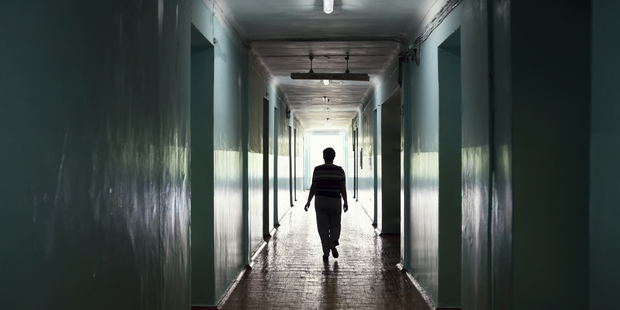Fran O'Sullivan: Questionable 'medical' practices not confined to overseas horror stories
5:00 AM Saturday Apr 4, 2014

The "Zombie Ward" - that's what the young female nurses, of which I was one, used to call the locked mental health facility where women prisoners were treated with the now-infamous "deep sleep therapy".
I've wrestled again with that uncomfortable experience from 40 years ago over the past couple of days since news broke about the lawsuit that more than 750 Guatemalan victims of a US-Government-sponsored experiment to infect them with syphilis and other sexually transmitted diseases had launched against Johns Hopkins University and the Rockefeller Foundation.
What the hell did the US Government think they were doing?
This "ethically impossible" research - as an Obama-appointed commission has damned it - took place from 1946-48, the same time the Western world was still recoiling from the revelations of the unconscionable medical experiments that Dr Josef Mengele performed in the Nazi Germany death camps of World War II.
But instead of offering US Government reparations - a step that Barack Obama, if he had a conscience, would take - the victims are having to slug it out in the courts because the US government cannot be held responsible in an American court of law for any action committed in another country.
The videos of the victims' stories are of course hideous.
When I was a 20-year-old trainee nurse in Dunedin in the early 1970s, the then-mental health institutions still contained a number of patients who suffered from neurosyphilis dementia or general paralysis of the insane.
Some had been committed by relatives for immorality (in the case of the women). Their misfortune was to have been born far too early to receive the penicillin medical treatment that later became available for those infected with syphilis - which the Guatemalan guinea pigs and their children have been denied.
There have been questionable "medical" practices here as well.
And they have still to be properly confronted.
So, to the modified - or "deep sleep" - therapy that was meted out to some Dunedin women prisoners at Cherry Farm Hospital before Christchurch Women's Prison became the sole correctional facility for women in the South Island in 1974.
In the early 1970s, the hospital - like others - used electro convulsive therapy or ECT as standard practice. But putting people under deep sedation for days on end was in a different order again when it was introduced as a voguish new treatment by a foreign doctor at a time when it was starting to be roundly condemned elsewhere.
It carried risks. The women patients had to be woken up from weeks of deep sedation and walked to prevent the risk of deep vein thrombosis. We had to turn them in bed every few hours or so to avoid problems.
In other villas - for men - similar "treatment" occurred.
No one questioned psychiatrists much back then. They were gods. Even when we nurses stepped up when we nearly lost one large patient during ECT because an incompetent doctor had not taken account of a prior cardiac condition, the higher-ups would not countenance questioning of medical staff.
I often worked in the women's secure villa where the violent patients or those on suicide watch were incarcerated.
We were taken aback when we were asked to prepare for new arrivals - female prisoners from Dunedin prison - who we were told would also undergo deep sleep or narcosis therapy in an especially locked-down unit of the villa.
It has never been made clear just who gave the approval for the prisoners to be taken to Cherry Farm Hospital for this controversial treatment.
It wasn't clear either from the later inquiry the Department of Health commissioned from Graham Mellsop and Michael Radford in September 1990 whether they were even aware that prisoners were among those subject to a treatment which by the mid-1970s was discredited. If so, they chose not to highlight this.
The departmental inquiry came about after Scientologists forwarded documents and affidavits to the authorities which could not be ignored.
Mellsop and Radford did a good job. But in retrospect, the Department of Health did not take up their recommendation to look more closely at Cherry Farm, where they said the amount, nature and varieties of drugs used were in their opinion not consistent with sound clinical practice. The report is understated but the cut-through is there. Cherry Farm was the hospital to use deep sleep therapy most; many patients were not given optimal treatment; the specific application of modified narcosis was inappropriate and applied to a large number of patients up to 1978.
They noted that by the 1970s, standard psychiatric textbooks either did not mention the topic or noted that it was no longer a respectable form of treatment. By 1980, the Australian and NZ College of Psychiatrists had denounced the continuous use of deep sleep therapy.
The disgraceful reality is that files were missing - including half those containing nursing notes; there was no evidence of systematic monitoring.
The two medical reviewers found the amount and nature of drugs used were not in their opinion consistent with sound clinical practice. "It is our opinion that a more extensive inquiry into the events at Cherry Farm would be required to fully elucidate the quality of care of the patients ... and to draw formal conclusions as to benefits versus harm and responsibility and accountability."
That never happened.
• Fran O'Sullivan was a trainee nurse at Cherry Farm for two years in the early 1970s.
Read more by Fran O'Sullivan Email Fran O'Sullivan

No comments:
Post a Comment